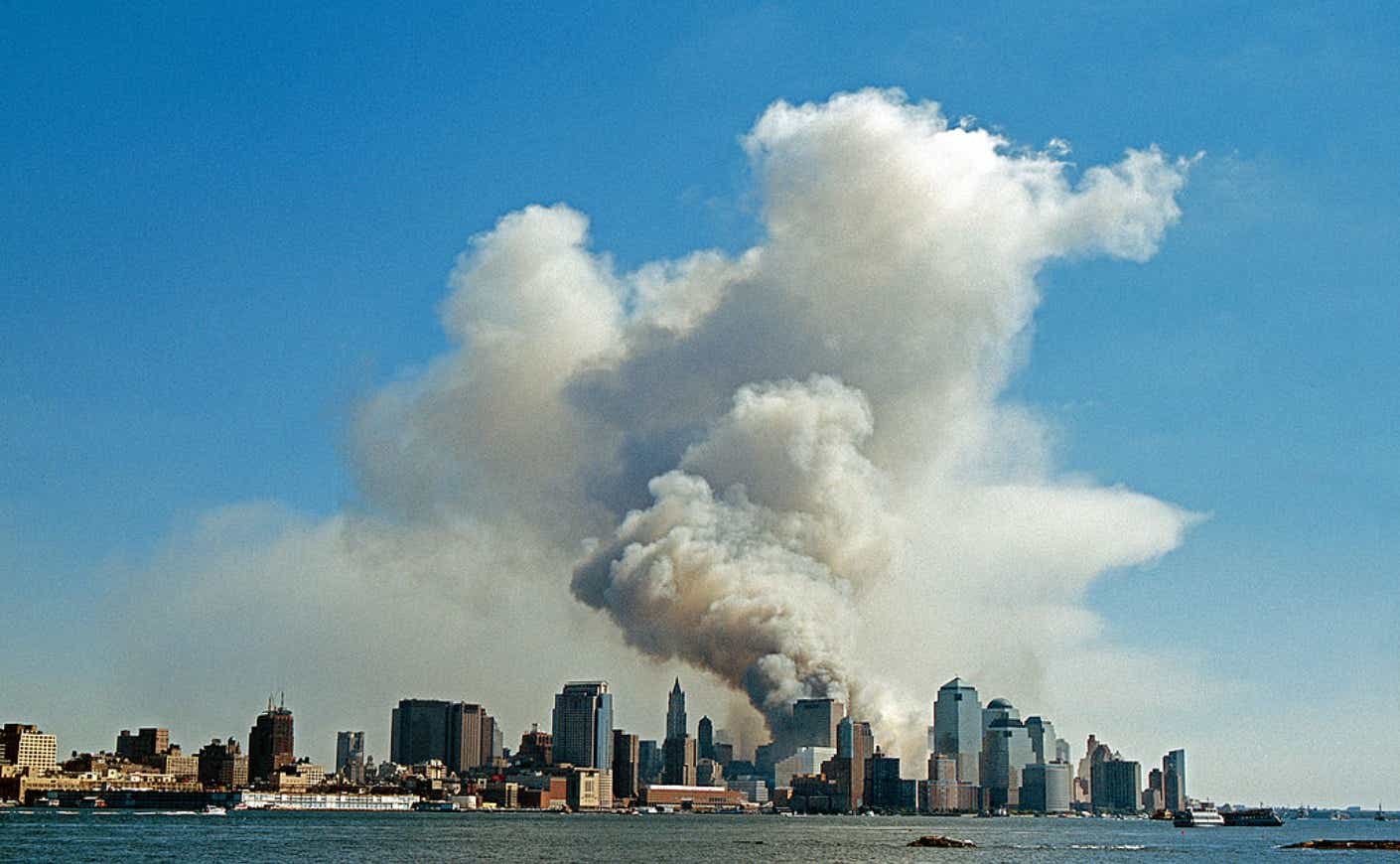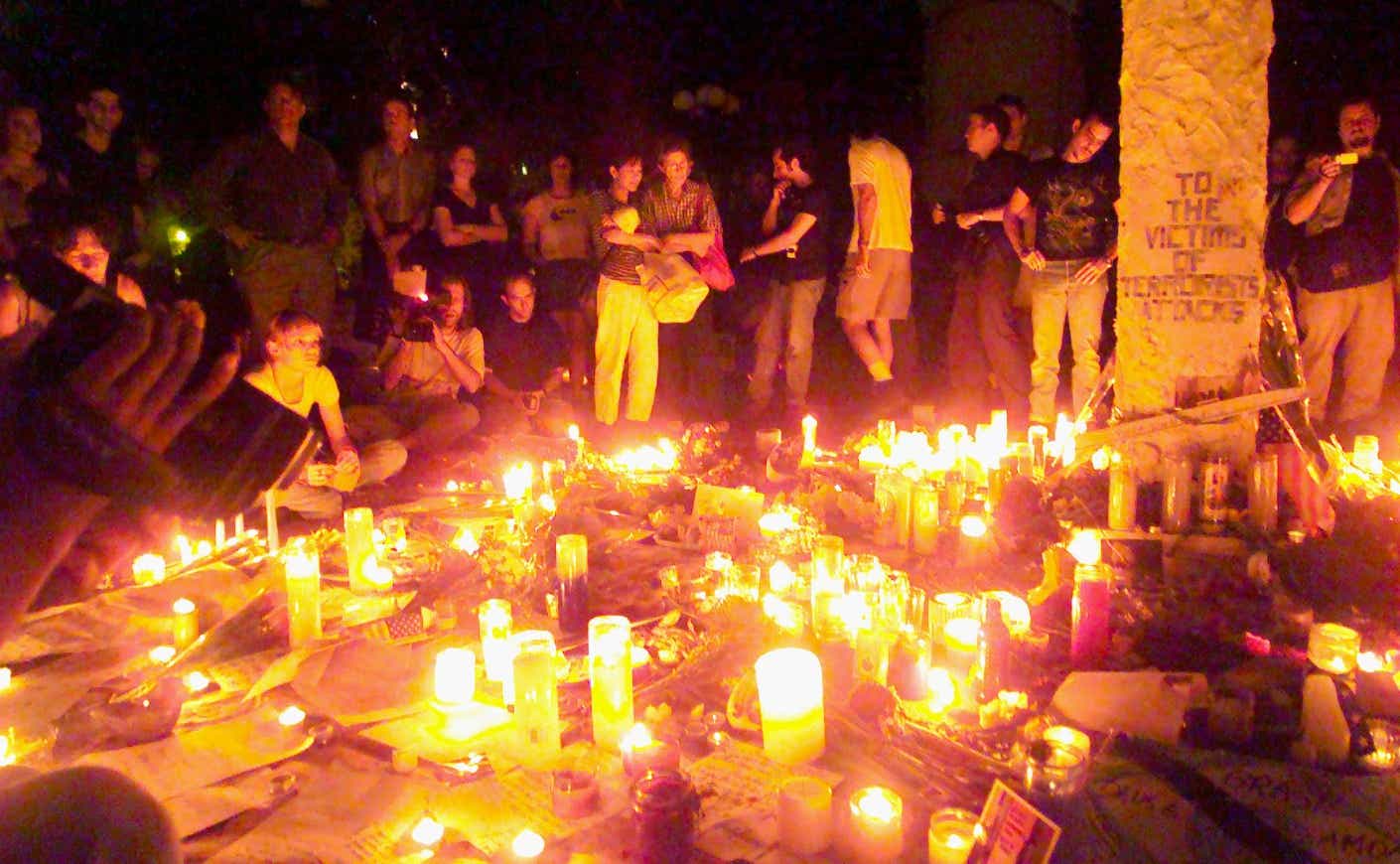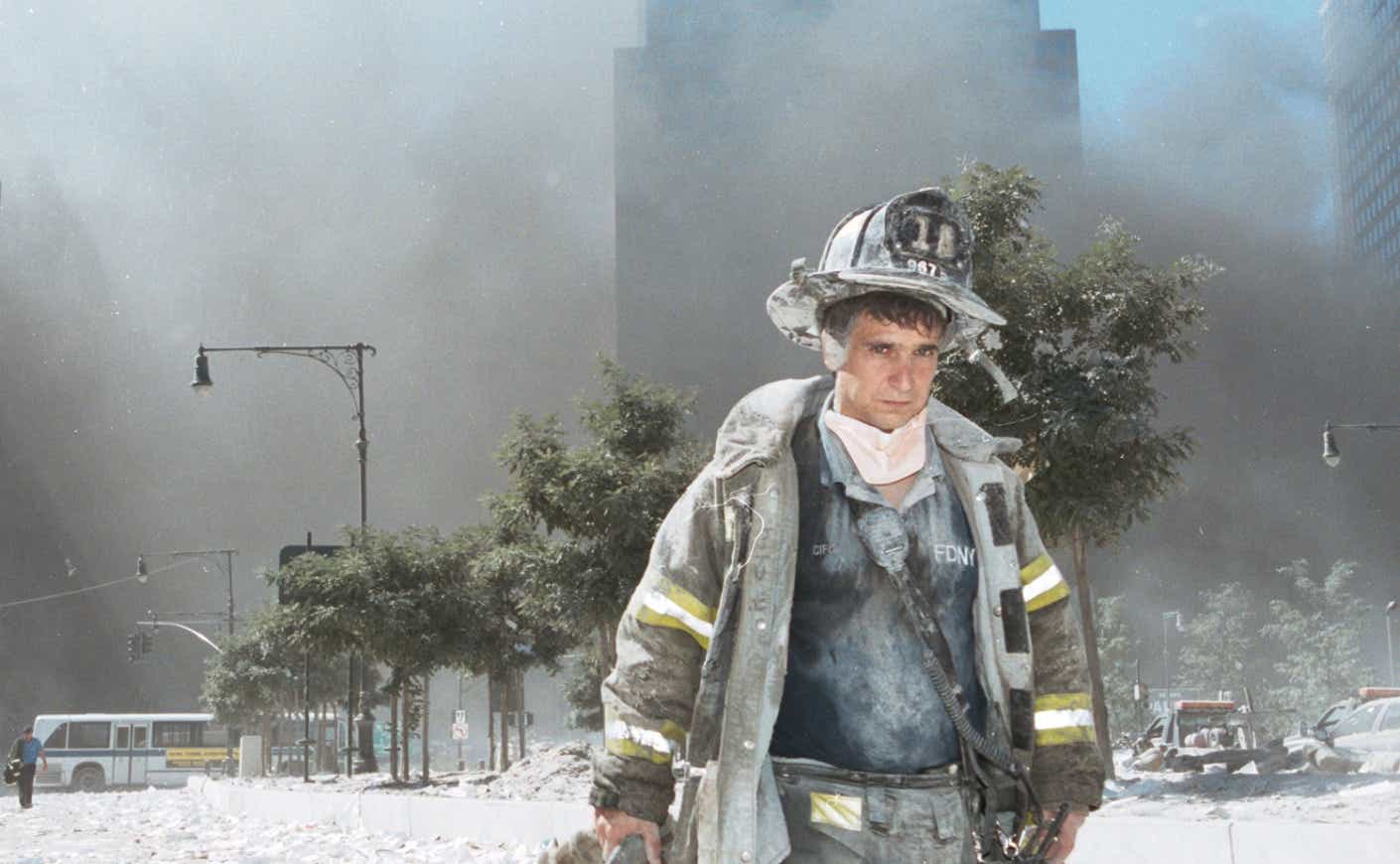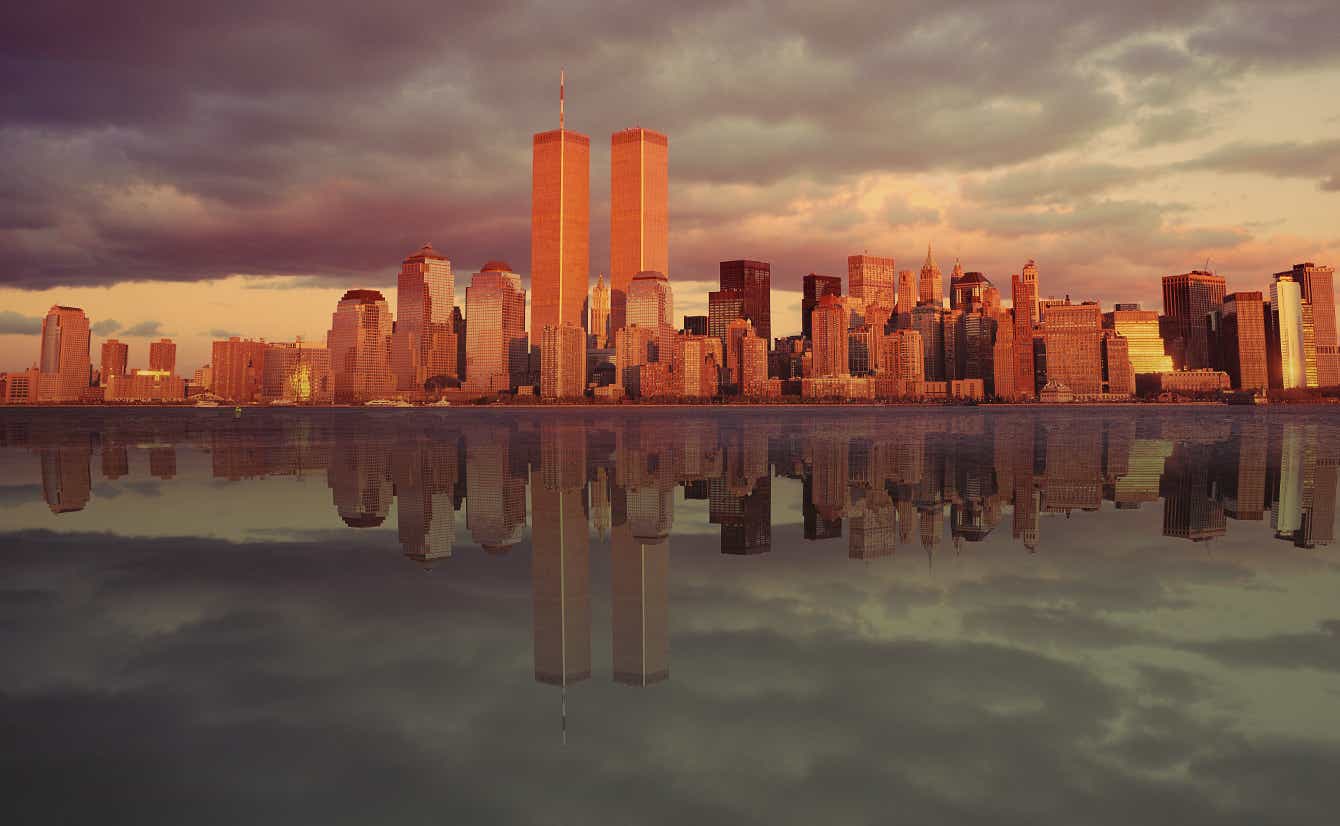Picture a pristine blue morning, not a cloud in sight. The crisp bite of early fall hangs in the air. The sun shines in the bright sky, promising a beautiful day ahead.
How does this scene make you feel? For many of us, it’s perfect weather, a gorgeous moment of seasonal transition that would make for a delightful walk through the park or a meal outdoors. For others, it’s foreboding.
Those were the conditions in New York City on Sept. 11, 2001, and for many who experienced the horrific events firsthand, waking up to a day that feels like that one is a reminder of something horrific.
“‘The clear blue sky’ — we have a lot of patients who talk about that, and who talk about, ironically, feeling terrible on days when there is a clear, beautiful, blue sky,” said Rebecca Rosen. She’s the mental health director at NYC’s World Trade Center Environmental Health Center, where she and her colleagues work with survivors who continue to experience distress related to memories of the shocking terrorist attacks.
The weather is just one innocuous element that can set off complicated thoughts. Until two planes crashed into the Twin Towers, Sept. 11 was an election day in New York — a primary for the mayoral race that would eventually install Michael Bloomberg into the city’s top job. “So for example, somebody might feel triggered when they go to vote,” Rosen said. “It was the first day of school for other people. So every time it’s the first day of school, or there’s that reminder of beginnings in that way, they are triggered.”
"Adults who were exposed to 9/11 struggle with PTSD at four times the rate of the general population."
It’s been 20 years since that hellish day, and while those of us who were fortunate enough to watch from a distance have our own painful memories, the visceral feelings of the people who were close to it — either physically or emotionally — are still a heavy burden two decades later.
“An experience like this is really knit into the very fabric of one's being,” Rosen said. “We're all made up of our different experiences in life, and this tragedy is a very, very big life experience.”

Rosen’s work is part of a fully integrated healthcare program that treats both the mental and medical effects of the attacks on the community of 9/11 survivors. Its patients are diverse, spanning different races, education levels, economic backgrounds, and even age, with some as young as 20 and others as old as 99. “Our population is really as unique and as varied as the population of New York City itself,” Rosen said.
The symptoms they experience are equally varied, and can include depression, hopelessness, guilt, or issues with substance abuse. The most common effect of the attacks is post-traumatic stress disorder. According to data from the WTC Health Registry, adults who were directly exposed to the events of 9/11 or were injured on that day struggle with PTSD at four times the rate of the general population.
According to Rosen, that PTSD can include “hyper-arousal symptoms, like always being on guard, trouble falling asleep or staying asleep, being easily startled; re-experiencing symptoms, like nightmares or memories that are hard to shake; and avoidance, which is keeping away from people, places, or any memories of 9/11. And negative thoughts and feelings as well — an overall depressed perspective, a negative view of the world, distrust of others. Irritability and concentration problems can also be part of this post-trauma picture.”
Those symptoms may have begun immediately following the attacks, but the mental effects of trauma don’t always pop up right away. Andrea Lopez-Yianilos, a clinical psychologist who is part of the Alma community of therapists, has worked with 9/11-related patients at both the WTC Environmental Health Clinic and within the Veterans Affairs system. She’s met patients who didn’t realize they still had trauma to deal with until a change later in life brought those feelings back to the forefront of their minds.
“Maybe they were too busy, or they jumped back into their lives and didn’t really feel the effects of it until much later,” Lopez-Yianilos said. “It’s a delayed expression of the PTSD, and that may be triggered by something like retirement or just having more mental space to reflect on what they’ve experienced.”

This time of year can be especially hard for the 9/11 survivors’ community. Lopez-Yianilos explained that many of these survivors protect themselves during this vulnerable period. “A lot of patients avoid talking about September 11,” she said. “They don’t even turn on the TV for a few weeks before 9/11 and on the day of 9/11. The avoidance of these triggers is very real for people.”
That's especially pronounced on significant anniversaries, like this 20th year. “Anniversaries of traumatic experiences are difficult for people who were victims, but this being a big, round anniversary, it's particularly upsetting,” Rosen said. “All the documentaries are very upsetting for our patients.”
Not everyone dealing with 9/11 trauma escaped the towers or lost a loved one. Rosen’s clinic also treats people who lived or worked near the World Trade Center at the time, or even just passed by the area on that infamous day. She said breaking through their feelings about how their own story fits into the larger narrative of 9/11 is often a key part of her work.
“We have patients who say they don't feel they're worthy of getting help, because they don't feel their exposure was as intense as somebody else's,” Rosen said. “They may feel a lot of guilt about their experience, as opposed to somebody else's, or feel guilt about seeking care. One of our jobs is to normalize anything that people feel, and help them feel they're indeed worthy of getting our treatment as much as anybody is.”

One important subset of survivors that Lopez-Yianilos worries isn’t discussed enough are those who developed physical health problems because of the toxic debris that covered the neighborhood after the Twin Towers fell. Even if they got sick years after the attacks, their struggles are just as connected to 9/11 as other victims, but may not be as immediately obvious.
“Some people feel like outliers or like they’re misunderstood, because some people don’t see the connection between cancer and 9/11,” she said. “But it’s cancer because of their exposure to the death cloud or the dust that was settling in their office space for a month or a year after.“
Though their work is heavy and challenging, both Rosen and Lopez-Yianilos said it's rewarding to give patients who are in pain the tools to better cope with it. 9/11 was a moment in history we all feel compelled to discuss and share stories about, and that dialogue can be just as important to observers of the tragedy as it is for those who experienced it firsthand.
“When people know that I work with this program, they'll tell me their story,” Rosen said. “It's a point of connection, and I think that's ultimately very powerful and very healing for the community at large."
Talking about that day can be harrowing, but dealing with reminders of their trauma is an important part of the treatment plan for 9/11 survivors. Lopez-Yianilos uses exposure-based therapy in which patients walk through their memories in a safe space, giving them tools to confront those memories without mentally re-experiencing them in a traumatic way.
“There’s a very big distinction between reliving and remembering,” she explained. “It’s an important point: Just because we have a memory of something, we aren’t necessarily reliving that experience. We can approach those memories and learn to feel those emotions — and they’re strong and intense — but we can also navigate and manage them.”









